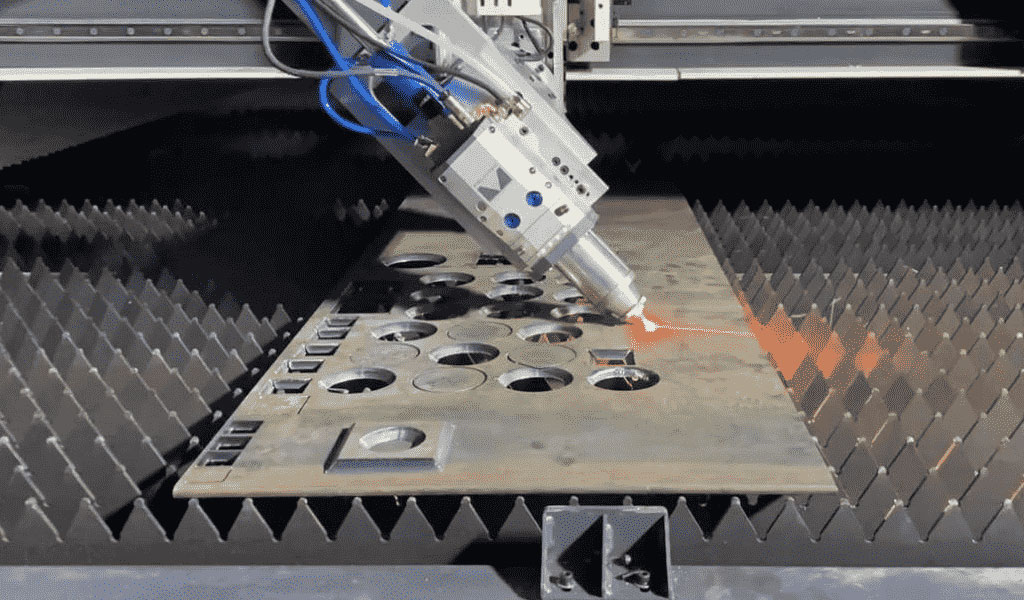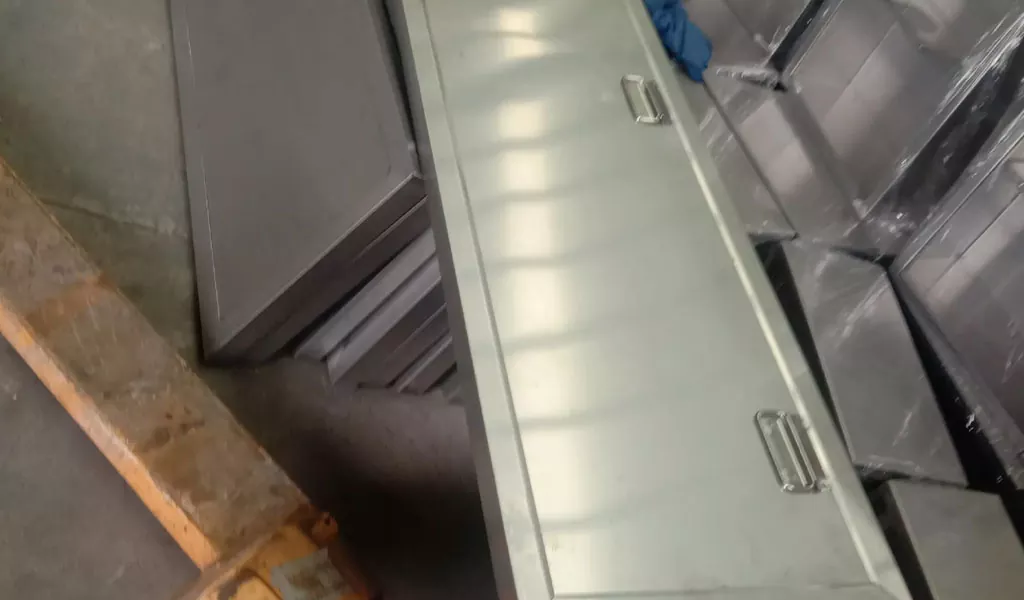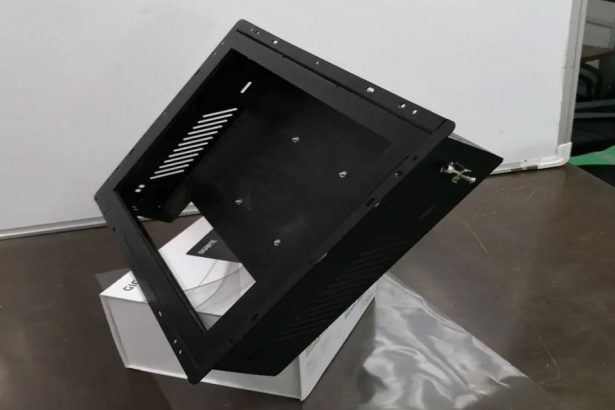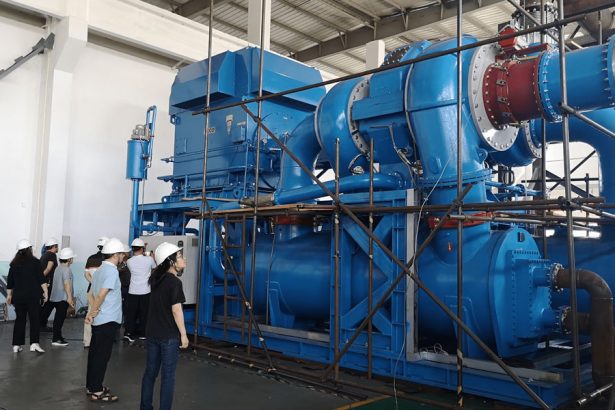Food industry sheet metal fabrication refers to the process of designing, manufacturing, and assembling sheet metal components and equipment specifically for use in the food industry. It involves utilizing sheet metal materials and fabrication techniques to create products that meet the industry’s stringent requirements for food safety, hygiene, and durability.ty throughout the entire enterprise.
Here are some key aspects of food industry sheet metal fabrication:
Material Selection:
Food-grade materials are selected, such as stainless steel or aluminum, which are known for their corrosion resistance, durability, and ability to withstand food processing environments.
These materials are safe for contact with food, do not react with ingredients, and are easy to clean and sanitize.
Hygienic Design:
Food industry sheet metal fabrication focuses on designing components and equipment with hygienic considerations in mind.
Smooth surfaces with minimal seams or joints are employed to prevent the accumulation of bacteria, contaminants, or food particles.
Rounded corners, sloped surfaces, and proper drainage systems are incorporated to facilitate thorough cleaning and prevent bacterial growth.
Sanitary Finishes:
Surface finishes are applied to sheet metal components to ensure ease of cleaning and prevent bacterial contamination.
Common finishes include electropolishing, passivation, or specific food-grade coatings that provide a smooth, non-porous surface resistant to staining and microbial growth.
Customization and Precision:
Food industry sheet metal fabrication involves the ability to customize components and equipment to fit specific food processing requirements.
Advanced CNC machining and precision fabrication techniques are utilized to ensure accurate dimensions, tight tolerances, and proper fitment.
Compliance with Food Safety Standards:
Fabricated components and equipment adhere to food safety regulations and industry standards, such as those set by organizations like the FDA (Food and Drug Administration) or local health authorities.
Attention is given to aspects such as preventing cross-contamination, maintaining proper temperature control, and ensuring easy access for cleaning and maintenance.
Equipment and Machinery:
Sheet metal fabrication is employed in the manufacturing of food processing equipment, machinery, enclosures, frames, racks, conveyor systems, and other components necessary for food production and packaging.
The fabrication process ensures that the equipment is robust, durable, and capable of withstanding the rigors of food processing environments.
Food industry sheet metal fabrication is vital for creating the infrastructure and equipment necessary for safe and efficient food processing. It ensures compliance with food safety regulations, facilitates proper sanitation, and contributes to the overall hygiene and quality of food products.
The Applications Of Food Sheet Metal Fabrication
Sheet metal fabrication plays a crucial role in the food industry by providing a wide range of components and equipment that ensure food safety, hygiene, and efficient food processing. Here are some common applications of sheet metal fabrication in the food industry:
Food Processing Equipment:
Sheet metal fabrication is used to manufacture various types of food processing equipment, such as mixers, blenders, conveyors, hoppers, chutes, and sorting systems.
These equipment components are designed to handle, transport, mix, and process food products efficiently.
Commercial Kitchen Equipment:
Sheet metal fabrication is essential in the production of commercial kitchen equipment like stainless steel countertops, cabinets, shelves, ventilation hoods, sinks, and worktables.
These fabricated components ensure proper sanitation, durability, and efficient operation in commercial food preparation areas.
Enclosures for Food Machinery:
Sheet metal enclosures house control panels, electrical components, and motors for food machinery such as ovens, fryers, refrigeration units, and packaging equipment.
Enclosures provide protection against environmental elements and maintain food safety standards.
Food Storage Containers:
Sheet metal fabrication is involved in manufacturing storage containers, bins, and tanks used for food storage in industrial or commercial settings.
These containers are designed to meet hygiene standards, prevent contamination, and ensure proper storage of food ingredients or finished products.
Hygienic Conveying Systems:
Sheet metal fabrication is utilized to create sanitary conveyor systems, belt conveyors, and modular conveying systems that transport food products efficiently while maintaining cleanliness.
These systems are designed with food-grade materials and surfaces that can be easily cleaned and sanitized.
Customized Equipment and Parts:
Sheet metal fabrication enables the customization of equipment and parts according to specific food processing requirements.
Custom components such as trays, racks, brackets, and frames are fabricated to fit unique processes or machinery.
Food Service Equipment:
Sheet metal fabrication contributes to the production of food service equipment, including food display cases, counters, vending machines, and self-service kiosks.
These fabricated products are designed for easy access, durability, and attractive presentation of food items.
In all these applications, sheet metal fabrication ensures compliance with food safety regulations, corrosion resistance, ease of cleaning, and durability. Adherence to proper fabrication techniques and finishes helps prevent contamination, promotes hygiene, and maintains a high standard of food processing and handling.
Hygienic Design and Material Selection of Sheet Metal Fabrication
Hygienic design and material selection are crucial aspects of sheet metal fabrication in industries where cleanliness, sanitation, and prevention of contamination are essential, such as the food and pharmaceutical industries. Here’s a closer look at hygienic design principles and material considerations for sheet metal fabrication:
Hygienic Design Principles:
Smooth and Cleanable Surfaces:
Fabricated components should have smooth surfaces without unnecessary cracks, crevices, or seams that can harbor bacteria, food particles, or contaminants.
Rounded corners, seamless transitions, and properly sealed joints help facilitate easy and thorough cleaning.
No Trapped Areas:
Avoid designs that create areas where liquids or food residues can accumulate and become difficult to clean.
Ensure proper drainage with sloped surfaces and eliminate dead spaces or recesses that may trap debris.
Non-Toxic and Food-Grade Materials:
Select materials that are food-grade and safe for contact with consumable products.
Avoid materials that can leach harmful substances or affect the taste, odor, or quality of food.
Corrosion Resistance:
Choose materials that are resistant to corrosion, rust, and degradation caused by exposure to food, cleaning agents, and environmental conditions.
Corrosion can compromise the cleanliness and integrity of fabricated components.
Easy Disassembly and Access:
Design components and equipment for easy disassembly, allowing thorough cleaning and maintenance.
Accessible areas for inspection, lubrication, or repair should be considered during the design phase.
Compliance with industry regulations and standards, such as those set by the FDA or local health authorities, is critical when selecting materials and implementing hygienic design practices. Collaboration with experienced sheet metal fabrication professionals, who are knowledgeable about food industry requirements, can ensure that the chosen materials and designs meet the necessary hygiene and safety standards.

China Sheet Metal Fabrication Manufacturer
Custom precision metal fabrication services. Product specialties include UL® certified NEMA enclosures for various environmental conditions. Capabilities include punching, shearing, laser cutting, bending, machining, press brake forming, and welding. Materials worked with include mild steel, stainless steel, aluminum, brass, and more. Production volumes range from prototype to 10,000 pieces annually. Contract options include discrete orders, blanket orders, quarterly buys, and annual contracts. Value added services include inventory management, rapid prototyping, process development, design for manufacturability, inspection, supply chain management, transportation, and logistics. Industries served include aerospace, automotive, defense, electronic, electrical, entertainment, food and beverage, health, industrial automation, machinery, medical, oil, energy, power, sporting goods, telecommunications, transportation, and more.
using high quality materials
for your sheet metal parts orders
We uses a wide range of material selections for our sheet metal fabrication process. Among our materials are aluminum, stainless steel, brass, magnesium, copper, carbon steel, bronze, galvanized steel, and more. Each material is available in different grades and varieties. Rest assured that all the materials used for your sheet metal parts are durable, corrosion-resistant, long-lasting, rust-proof, wear-resistant, and high-performance. If you want a specific material to be used in the sheet metal fabrication process, don’t hesitate to contact us!
- Carbon Steel
- Stainless Steel
- Aluminum
- Brass
- Copper
- Magnesium
- Bronze
- Galvanized Steel
Why BE-CU is Trusted by 1000+ Clients
Our sheet metal fabrication covers a lot of benefits to many industries, businesses, or projects. Below are the advantages of our services.
- Affordable and Fast Production:We can quickly produce different sheet metal prototypes and final products. KDM offers speedy production while assuring high precision. Our high-volume production also allows us to have cost-effect sheet metal fabrication services.
- Excellent Strength to Weight Ratio:Through our advanced sheet metal fabrication, we can produce sheet metal parts that are lightweight yet durable. We assure high strength, scratch resistance, and corrosion resistance to all produced sheet metal products.
- Wide Range of Materials and Techniques Used:We are experts in different sheet metal fabrication techniques that allow us to produce complex parts with additional intricate features such as notches, slots, holes, etc. Our wide range of sheet metal materials can also withstand electrical, high heat, corrosion, and more.
Online Contact China Precision Sheet Metal Manufacturers
As a direct supplier of precision machined and finished complete components to all segments of the aerospace, semiconductor, automotive, and medical industries, including innovative high tech startups, BE-CU Sheet metal manufacturer is your trusted source for precision sheet metal fabrication services.
To learn more about our aluminum,stainless steel and other steel alloy sheet metal fabrication services, contact us, or give us a call at +86 153 8731 8440, and one of our expert associates will assist you. BE-CU is your trusted source for premium sheet metal fabrication services and metal spinning china manufacturer.




